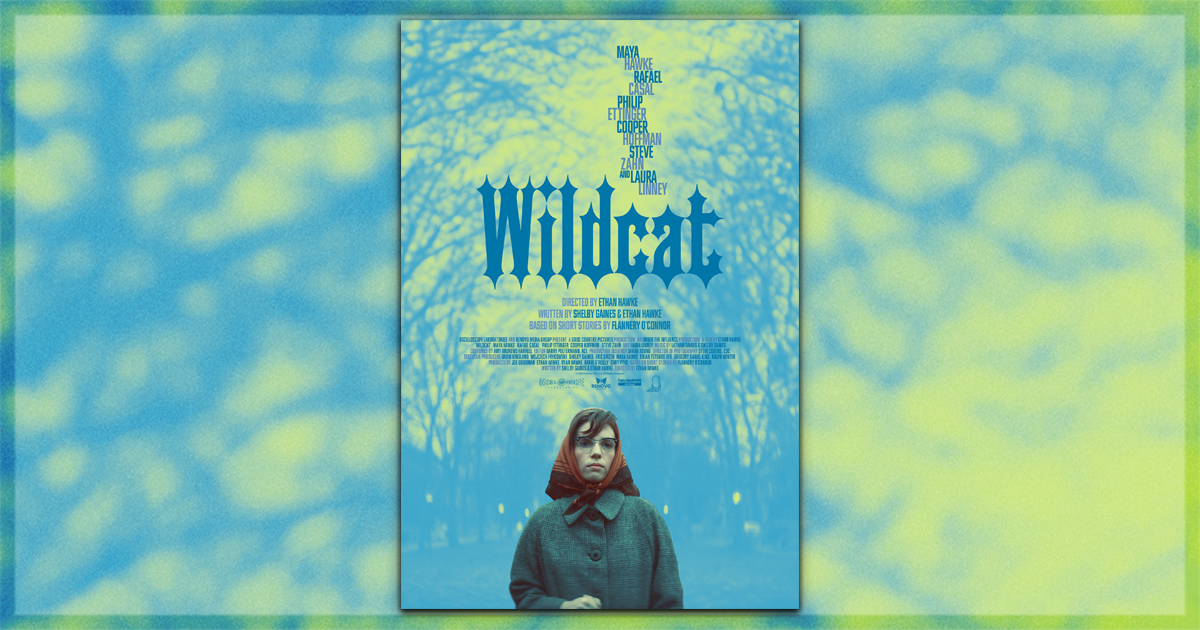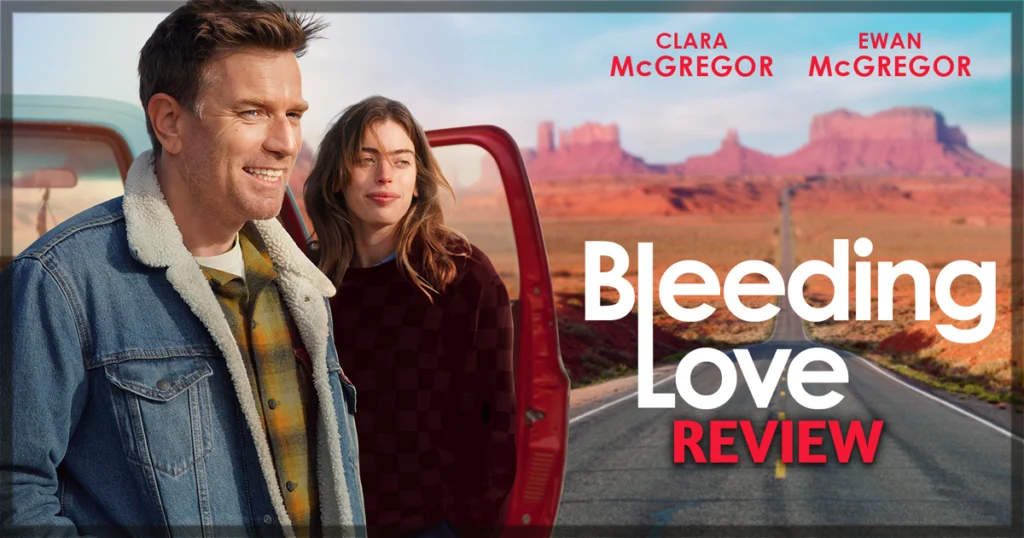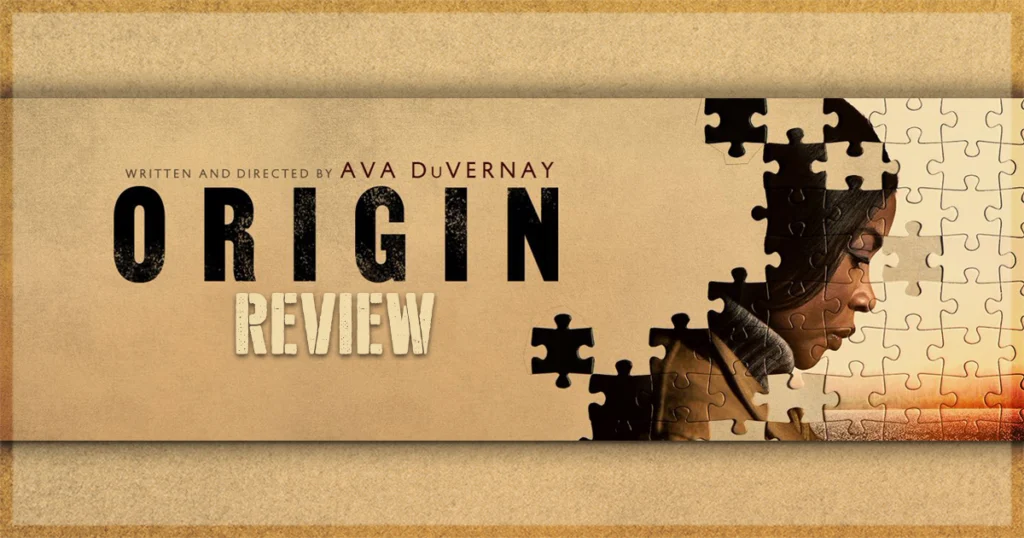How do you illustrate for the screen a life lived with physical limitations? You illustrate the life of the mind. In this biopic of writer Flannery O’Connor (Maya Hawke), the inventor of the ‘southern Gothic’ genre of literature, director Ethan Hawke (also the producer, co-writer, and Ms. Hawke’s father) chose to enact sequences from the most famous of Ms. O’Connor’s short stories. The conceit works wonderfully if you’re a fan of her work, though if you don’t know much about her or her bleakly violent comedies of the grotesque, this might be a bit too weird an introduction. But nothing about Ms O’Connor’s life or work was easy, and close attention to what Wildcat is trying to achieve reaps spectacular awards.
Wildcat’s Southern Gothic Journey
The movie begins with a faux trailer for an imaginary movie based on one of her stories before introducing Ms. O’Connor in 1950s New York City, having an argument with her editor (Alessandro Nivola) over the shape and style of her novel “Wise Blood.” But it’s not long before the cruel disease of lupus means she must leave behind her literary milieu – and a man named Cal (Philip Ettinger), who was one of her professors – to return to rural Georgia to be cared for by her mother Regina (Laura Linney).
She might have been born and raised in the south but that world is not her home. The trouble is that her devout Catholicism, combined with her refusal to sugarcoat the racism of the people she writes about, doesn’t make her welcome in the literary world either. The scenes where smug white-boy grad students publicly diminish her to make themselves feel better carry a very sharp sting.
If all you know of Ms. O’Connor’s work is “A Good Man Is Hard to Find,” you’ll still know that her characters are stupid, selfish, cowardly, mean, vain, racist, and with a hair-trigger tendency to violence, but most importantly that her characters do not see themselves that way. They are temporarily embarrassed in one way or another and trying to find truth or love in the most awful circumstances. They are generally astonished when the world meets their high ideals with mockery, contempt and/or violence.
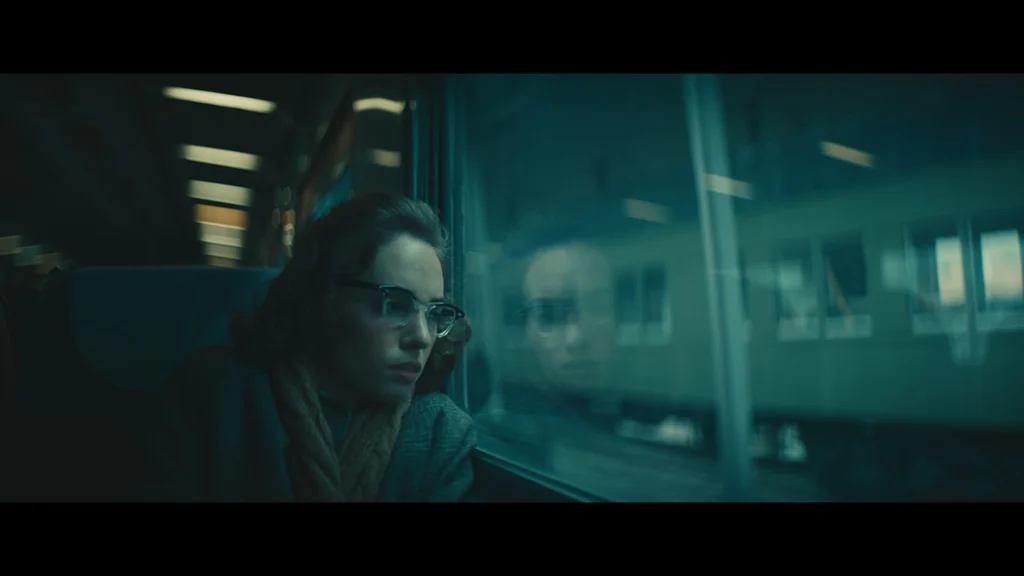
A bride is abandoned on her honeymoon by her husband who feels entitled to a better kind of wife, a woman is seduced by a Bible salesman so that he can steal her artificial leg, another woman cannot cope when her genteel racism is called out, and a drifter desperately attempts to improve his strange marriage through a disturbing tattoo. The women in these stories are played by Ms. Hawke or Ms. Linney, while the men are portrayed by actors including Cooper Hoffman, Steve Zahn, and Rafael Casal.
O’Connor’s Legacy: Rage, Disappointment, and the Divine
Through them, we see Ms. O’Connor’s rage and disappointment at the society around her and her belief in the importance of struggling against your circumstances. But Ms. O’Connor also believed that most of those efforts were for nothing. It’s a cynical and difficult point of view, but one which continues to resonate very strongly in American society, with its contempt for the unlucky, unwell and uneducated. Ms. O’Connor was both of the former but not the latter and used her typewriter to paint these indelible pictures of human suffering and the human divine.
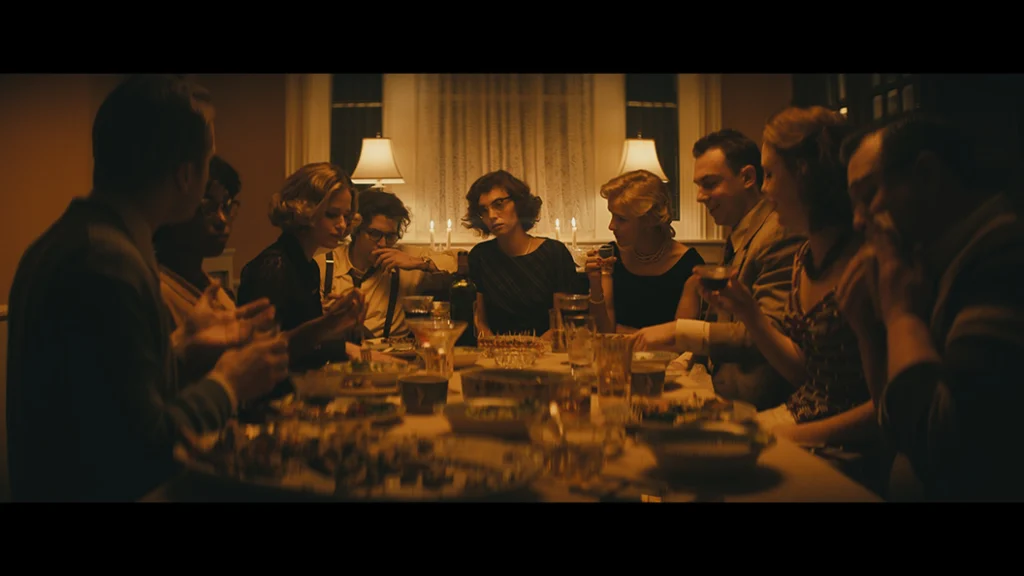
A Remarkable Performance Captures a Complex Mind
Ms. Hawke’s remarkable performance has a surprising absence of vanity, with crooked teeth and a general sneer that just manages to be relatable instead of alienating. There’s a brief moment when Ms Hawke smiles as she catches an apple tossed to her that even somehow manages to capture an entire worldview in one gesture. Ms. Linney, who with this and Suncoast, has become typecast as a long-suffering mother/nurse, does equally superb work as a woman who treats her daughter as an adult but is not necessarily supportive. At one point, Regina asks Flannery directly why she can’t write happy stories that people want to read. Ms. Linney’s ability to convey several different dimpled flavors of Karen-esque racism is an unappreciated skill, too, but one that’s important to enable understanding of how the world has gotten this way, and how irritated Ms. O’Connor was about it.
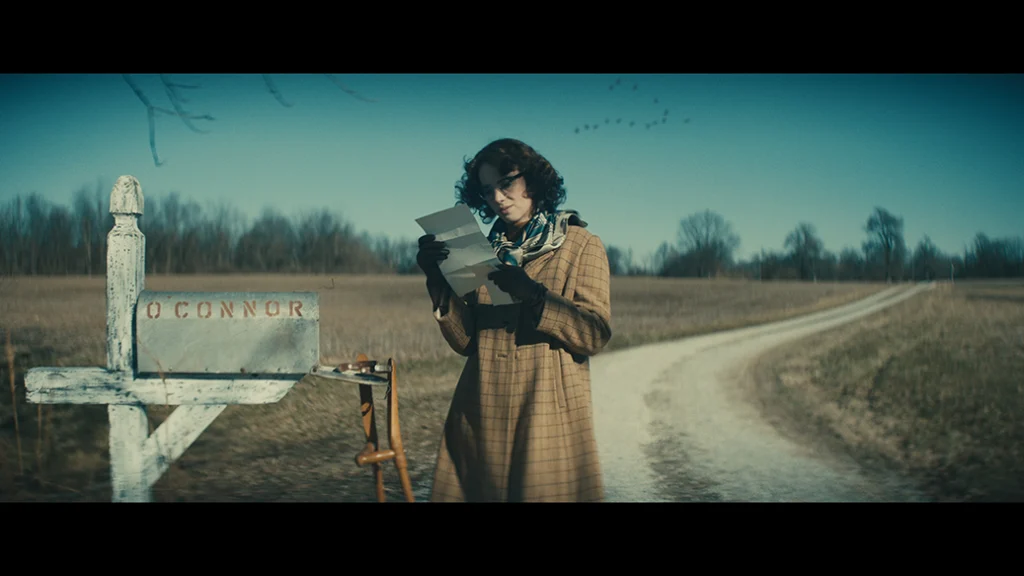
Ethan Hawke’s Directorial Style: A Literary Lens
Mr. Hawke has always been one of our most literary actors, with several novels under his belt and a reputation for bookishness in his on-screen personas that goes back to Dead Poets Society. He wrote the script with Shelby Gaines (who also did the excellent, propulsive music with Latham Gaines), and he brings a clear-eyed sympathy for Ms. O’Connor’s ethos.
As with Wes Anderson, it’s easy to forget he’s from the south, and Mr. Hawke took a few pages from Mr. Anderson’s visual style, in keeping the actors generally centered in the frame. But the staginess isn’t overdone, and cinematographer Steve Cosens has his own style, especially in the story sequences, where the mood of weary contempt and cynical beauty is the most powerful.
The final shot of Ms. O’Connor at her typewriter is an act of kindness, too – one that appreciates both her gargantuan talent and the work it took for her to achieve as much as she did while she was so unwell. And it’s there the metaphor of the title comes through, as a wildcat is a powerful and unpredictable creature. As was Flannery O’Connor. It’s been a long time since a movie has done such a good job of portraying a mind on-screen.
Wildcat is now playing in limited theaters nationwide.
Learn more about Wildcat, including how to buy tickets, at the official website.

